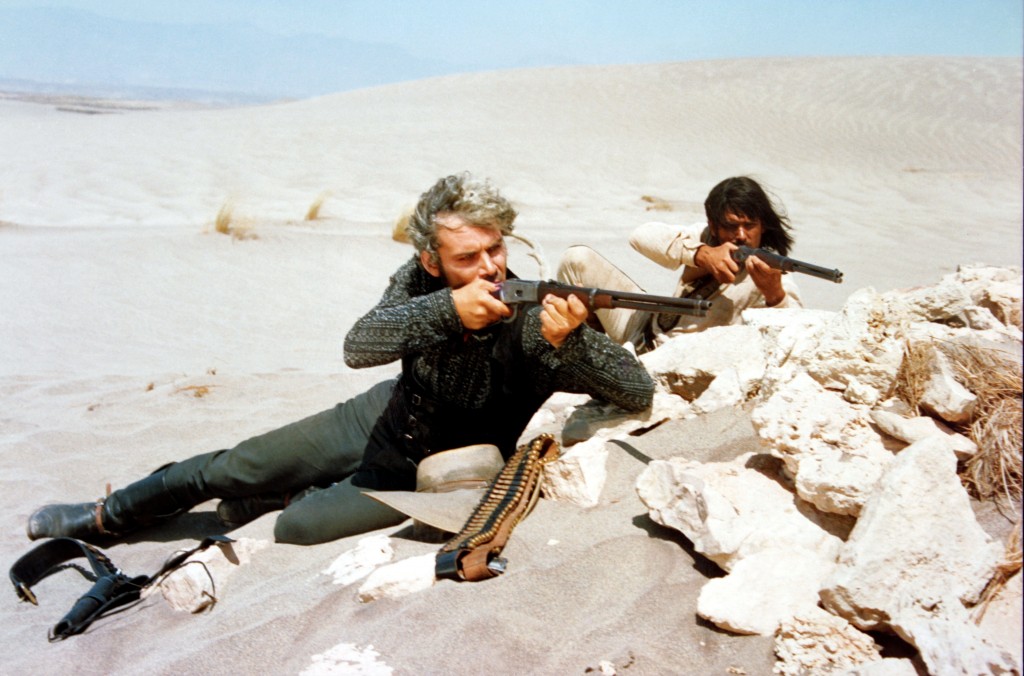Faccia a Faccia Review
 After the commercial success of his 1967 western The Big Gundown, the ‘other Sergio’, Sergio Sollima again returned to the genre, reuniting with actor Tomas Milan for Faccia a faccia. Alongside Tomas Milan, as outlaw Solomon Beauregard Bennet, in Faccia a faccia is Gian Maria Volonté as Brad Fletcher, a professor who appears to be slowly dying from a problem with his lungs.
After the commercial success of his 1967 western The Big Gundown, the ‘other Sergio’, Sergio Sollima again returned to the genre, reuniting with actor Tomas Milan for Faccia a faccia. Alongside Tomas Milan, as outlaw Solomon Beauregard Bennet, in Faccia a faccia is Gian Maria Volonté as Brad Fletcher, a professor who appears to be slowly dying from a problem with his lungs.
The film begins with the kidnapping of Fletcher by Beauregard, who originally takes Fletcher as a hostage but the two begin to form a friendship and after Fletcher helps Beauregard out of a difficult situation he too becomes an outlaw. Beauregard teaches him how to shoot a gun, introducing him to a violent world he has hitherto been unfamiliar with. Beauregard also introduces him to his gang and the many bandits that surround them.
The narrative progression in Faccia a faccia is dominated by these two characters and the changes in their behaviour and their attitudes. Whilst significant events occur within the story, bank heists and plans to capture the pair by Pinkerton agents, it is the central relationship between the two and their gradual character developments that make Faccia a faccia such a fascinating and rewarding film.
Significantly there is a crucial switch in the two characters’ behaviour that makes it so interesting. Beginning the film as an intellectual, unable to even fire a gun, Fletcher is a professor not a fighter and as such he seems so far removed from the violent world that Beauregard inhabits. Beauregard by contrast is an unrestrained outlaw who doesn’t stop to question who he may be hurting with his bandit lifestyle, something Fletcher is originally quick to point out. During the film the two characters somewhat reverse roles but is not simply a direct switch as whilst Beauregard gradually begins to realise that there is more to life than what he is living and comes to appreciate the exploitative nature of his behaviour, Fletcher does not simply take over from Beauregard, he becomes something even more destructive and despicable.
Around two-thirds of the way through Faccia a faccia Fletcher becomes entirely seduced by the outlaw lifestyle and positions himself as a dictator, ruling over the poor and uneducated outlaws, fully embracing sadism and violence as methods of control. The earlier line in which Fletcher comments, “I’ve never seen people so real. People so free and happy.” seems so much more sinister when one sees the way in which Fletcher uses his intelligence to position himself as their leader and manipulate and exploit them.
The engagement in Faccia a faccia with ethical considerations surrounding violence, control and dictatorship mark it out as more than just an entertaining western, but it is certainly that as well, with a nail-biting bank heist and well choreographed action the film never drags or gets too bogged down by the political or ethical concerns. In the tradition of so much quality genre cinema it treads the line between heady ideas and effective entertainment, ensuring even casual audiences will find it as rewarding as the more active viewer, something other excellent westerns, including the impressive but difficult A Bullet For The General, often seemed to struggle with.
A slightly different version of this review was originally posted at HeyUGuys.